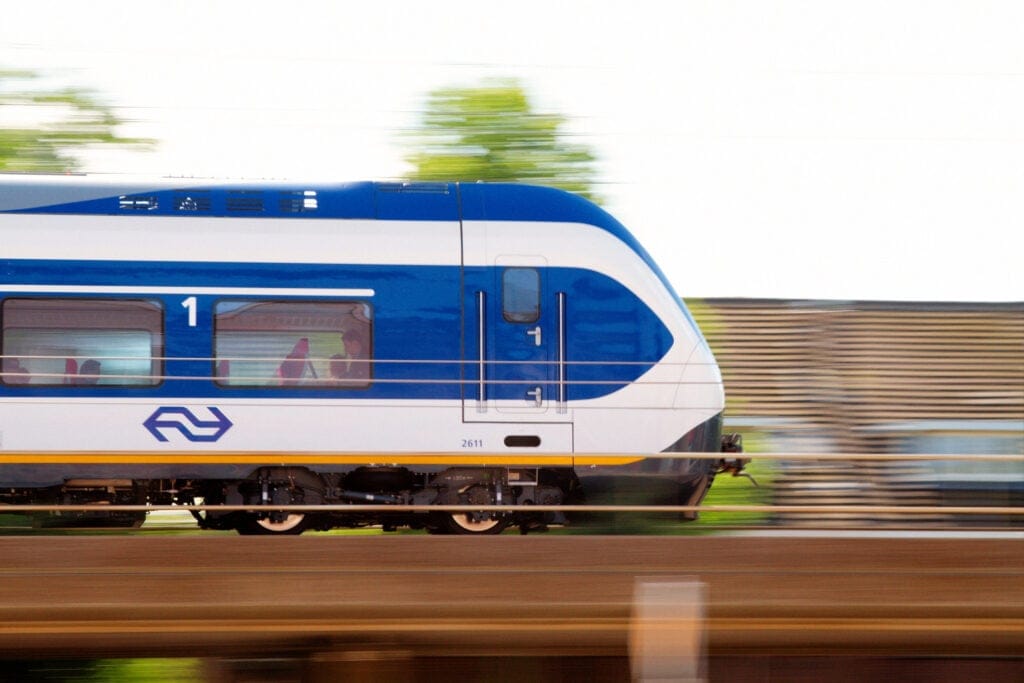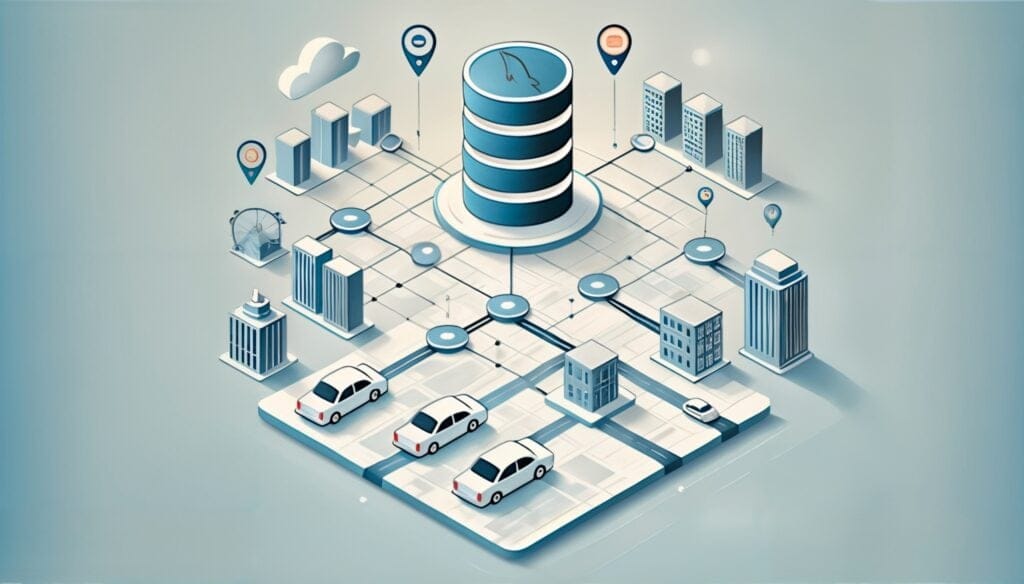
We interviewed Horst Bayer, founder of TravelHorst, which focuses on sustainable business travel consulting. As the Chair of the Business Travel Working Group at the Global Sustainable Tourism Council (GSTC) and with extensive experience in managing corporate programmes for companies such as Siemens and Hitachi, we’re honoured to share his insights on how organisations can shift to a greener mindset.
Let’s hear it from him:
I am currently living only about 10 km from the place where I grew up. The route between Nuremberg and Fuerth became famous as Germany’s first railroad track. A journey between these two cities takes about 8 minutes by train nowadays.
However, my journey between these two cities took me almost 20 years. After studying and working as a corporate travel agent in Nuremberg, Germany, I lived and worked in the same field in Mexico City for eight years before I was hired by Siemens USA to run its North American Travel Operation Programme.
After 11 years with stopovers in California, Texas, and Florida and heading Siemens’ Travel Programme for the Americas, I continued farther eastbound and finally moved to Fuerth, Germany, where I took over Hitachi Data Systems’ EMEA Travel Programme. Although I was travelling intensively, I always felt best being home and spending precious time with my wife and two children.
Sustainable business travel
1. Tell us more about your experience in travel management. What are some key challenges you faced in your roles?
Running a travel programme for conglomerates and working with highly qualified and well-educated people provided me with a vast learning opportunity. However, the pressure of always delivering year over year savings was at the expense of the travellers’ convenience and often led to their dissatisfaction. While reporting to the Finance or Procurement Department, compliance was used more as a driver for cost control than for safety and security reasons. Attention to the environment was not existing.
2. Why did you decide to move into the field of sustainable business travel consulting?
During my “professional journey”, my family and I learned to value different cultures and the diversity of people. When my kids grew older and learned about “climate change and global warming” they asked me if I knew about it and what had I done against this crisis so far. At that moment, I felt guilty because YES, I had heard about it, and NO, I hadn’t done anything against it, on the other hand, I had contributed a lot to it.
As a consequence, I started to research more about it. The more I read about Climate Change, the more I felt the urge and need to do something against it. Therefore in 2017, I founded TravelHorst and since then I am on my “path of redress”.
3. What concerns you most about the sustainability challenges we all face today, and what specific sustainability challenges have you identified in business travel?
Sustainability is the concept of permanently sustainable development of the economic, ecological, and social dimension of human existence. These three areas of sustainability, which are also called the three Ps – People (social), Planet (ecology), and Profit (economy), interact with each other and require balanced coordination in the long-term.
Horst Bayer, Travel Sustainability Expert, TravelHorst—sustainable business travel consulting“Sustainability in a travel programme means understanding that increased savings is not the only requirement, it only functions with the wellbeing of the travellers and the mitigation of a negative impact on the environment.”
My biggest concern is that we are running out of time by doing too little for the ecological dimension. The longer we wait with needed actions against the climate crisis, the harsher we must act. This will lead to more social dissatisfaction of the people and make acting more difficult.
We need to focus more on the social-ecological factor in our decision-making process. When we decide to travel, we need to better understand and communicate the negative impact it has on the environment.
4. What actions are being done to move towards sustainable business travel and why should companies pay attention?
According to a European directive, which many countries passed into law, companies must publish a non-financial report that includes matters of the environment, society and employees. Under Scope III of the Greenhouse Gas Protocol, which includes greenhouse gas emissions from business travel and employee commuting, organisations must publish their CO2 emissions from air travel, car, rail, buses, and other means of transportation.
However, disclosing the data is only a first step. Sooner or later, governments will implement a higher price on carbon emissions, therefore, acting to lower those emissions is increasingly important. A growing number of cities release Clean City Acts so it will be crucial to also keep an eye on how employees commute to their workplace.
Be ahead of the game, show all the good things an organisation is doing in its business travel programme and communicate them to all stakeholders in a positive way! This will be beneficial to attract new talents, increase employee satisfaction, and help society and the environment.
5. How can companies shift towards more sustainable business travel programmes?
Analyse your travel policy in regard to sustainability and team up with your procurement department and other internal stakeholders. Sustainability is a journey and not an easy setup. It has many deliverables and milestones to reach. It takes a commitment from management.
Many companies believe that the best practice solution is just compensating their CO2 emissions from business travel. Sustainability is much more than compensating a company’s air travel though. Before we think about compensating air travel, we must find ways to avoid unnecessary trips or replace air travel with more climate-friendly means of transportation. If a trip is still inevitable then you should compensate the greenhouse gas emissions of this trip.
6. Sometimes business travel can’t be avoided. What are some transportation solutions in these cases?
Yes, sometimes business travel cannot be avoided, but make sure to balance the total cost of the trip with the traveller’s convenience and the most ecological means of transportation.
If flying is the only option, then fly responsibly. Pack light for minimal luggage and travel with only the essentials. Assure that other parts of the travel are sustainable. Say no to all plastics and take reusable bottles, straws, bags, cutlery, etc. Use public or shared transportation to/from airports, stay at sustainable and earth-friendly accommodations.
7. It might sometimes be difficult to convince decision-makers and stakeholders to make more sustainable business travel choices—perhaps cost is an issue, or they’re concerned about the convenience of alternatives. What advice would you give to win them over?
Work with the decision-makers and stakeholders, not against them. You have to bring them aboard. Support others to see the need for change and the importance of acting immediately. Assure that there is a powerful team guiding the change. Explain how the future will be different from the past, and how to make that future a reality. Continue with the new ways of behaving, and make sure they do well until they become robust enough to replace old traditions.
8. Can you describe a time where you felt you were able to convince someone to follow a more sustainable route?
A few days after my presentation about the Climate Crisis to a group of students, one of the participants said that he had decided against a “two-day party trip” to Mallorca with his friends because of global warming.
We all need to start with ourselves first and lead by example. I am invited to give a presentation at the Business Travel Show in February and at an ITM meeting in March. Both meetings will be in London, UK. Although it might be more expensive, I will follow Greta’s example of not flying—at least not within Europe.
9. There’s a new generation entering the workforce. How do you think their habits and priorities will affect business travel and sustainability over the next 10 years?
Companies do a lot to attract new talent. Showing them the company’s “green footprint” is a very important and successful tool. On the other hand, I must admit that trips to see the world which are paid by the company are quite tempting for young professionals, as well as important for their personal development.
New generations have another relationship to our planet. They do understand that there is no Planet “B” and that we all depend on it. Therefore, there is a big hope that new generations entering the workforce will set different priorities; more sustainable ones.
However, I believe that it will take some time until they are in a position to change the direction of a company. Whilst the “older” generations are in charge, the new workforce may adopt unsustainable processes. Therefore, we must focus on changing the mindset of the managers who are in charge now.
10. Finally, what’s the most important advice you would like to share with organisations who want to be more sustainable?
We can still limit global warming to 1.5 degrees Celsius, we just have to be serious. We should not miss this truly historic opportunity. An organisation can start and limit business travel to the bare minimum. Technologies that make travel unnecessary is ubiquitous.
It takes courage and a strong will to implement sustainability in business travel. Our youth is calling for action against the climate crisis. Now is the right time to start.

Want more?
Horst Bayer spoke on sustainable business travel in an Uber x ITM webinar. You can access the recording on the ITM website.
Posted by Jodi ten Bohmer
Simplify travel expenses for your business
Related articles
Most popular

How Uber Uses Ray® to Optimize the Rides Business

MySQL At Uber

Adopting Arm at Scale: Bootstrapping Infrastructure
Uber Auto is now on SaaS – What does that mean for riders?
Products
Company




